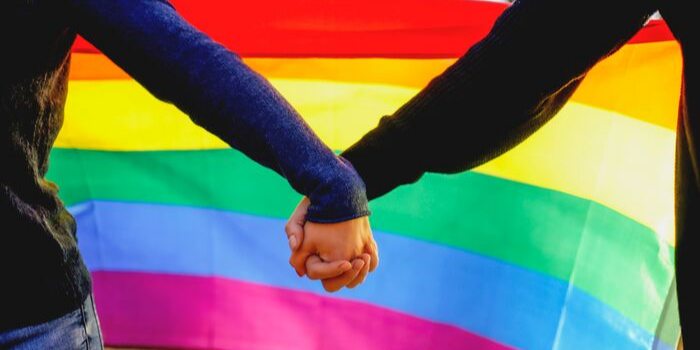
On October 8, the day before Yom Kippur, the Supreme Court will hear oral arguments for three cases that will have lasting impact on the rights of LGBTQ people in the United States. The cases center around the definition of sex discrimination in employment law. Specifically, they will determine whether sex discrimination – prohibited by Title VII of the Civil Rights Act of 1964 – encompasses discrimination on the basis of sexual orientation and gender identity. The outcome of these cases will determine whether an employee can be fired based on their sexual orientation and gender identity or expression. In keeping with our Jewish commitment to equality, the Union for Reform Judaism, Central Conference of American Rabbis, Women of Reform Judaism, and Men of Reform Judaism all signed on to amicus briefs for these cases supporting LGBTQ rights. Below is a brief summary of each case:
Altitude Express v. Zarda
Don Zarda had performed hundreds of jumps as a skydiving instructor before he was fired in 2010 after a customer complained that Zarda was gay. Zarda sued the company for discrimination, but a federal court rejected the claim. Zarda passed away in 2014, but his family has continued the lawsuit on behalf of his estate. In February 2018, the Second Circuit Court of Appeals upheld Zarda’s sex discrimination claim and ruled that discrimination based on sexual orientation is a form of sex discrimination prohibited under Title VII of the Civil Rights Act of 1964.
Bostock v. Clayton County, GA
Gerald Bostock had worked for Clayton County, Georgia for ten years when he was fired from his position as a child welfare services coordinator in 2003 for being gay. Bostock sued the county, claiming discrimination based on sexual orientation in violation of Title VII of the Civil Rights Act of 1964. A district court dismissed his lawsuit, arguing that Bostock misinterpreted the sex discrimination clause of the Civil Rights Act, and the Eleventh Circuit Court of Appeals affirmed the dismissal.
R.G. & G.R. Harris Funeral Homes v. EEOC and Aimee Stephens
Aimee Stephens was fired from her position as a funeral director at R.G. and G.R. Harris Funeral Homes after informing the funeral home’s owner that she is a transgender woman. Her employer said it would be “unacceptable” for Stephens to appear and act as the woman she is. In March 2018, The Sixth Circuit Court of Appeals ruled that the funeral home owner violated Title VII of the Civil Rights Act of 1964 by firing Stephens for being transgender.
It is essential that the Supreme Court affirms an interpretation of the Civil Rights Act protecting LGBTQ people from employment discrimination. Discrimination based on who someone loves or their gender identity is clearly a form of unacceptable sex discrimination. Both legal arguments and Jewish values support that conclusion.
On Yom Kippur, the holiest day of the Jewish calendar, we are reminded not once, but three times, “You shall be holy, for I, the Eternal your G-d, am holy.” (Leviticus 19:1-20:27). Indeed, our tradition teaches that we are all made b’tzelem Elohim, in the holy image of G-d, and that each of us holds a divine spark inside (Genesis 1:27). In recognizing the holiness of humanity, we are mandated to uphold the dignity and equality of every person. We cannot stay silent when a group of us faces discrimination for a part of their holy identity.
As we reflect on our year and atone for past transgressions, let us also look toward a future filled with justice, compassion, equality, and holiness. To learn more and get involved in advocacy surrounding the upcoming Supreme Court cases, check out these resources:
- Learn more about #OurDayinCourt and the protests happening in DC and around the country on October 8.
- Visit the Religious Action Center’s Transgender Rights Campaign page. From here, you can join the online conversation in the Tent and access other Jewish and secular sources on transgender equality.
- Read about the Holiness Code and how the Reform Movement prioritizes the Jewish ideals of equality, justice, and tikkun olam when interpreting our texts.
Related Posts

Remarks from Rabbi Eliana Fischel at Jewish Gathering for Abortion Access

Teens from North Carolina Speak About Environmental Justice


